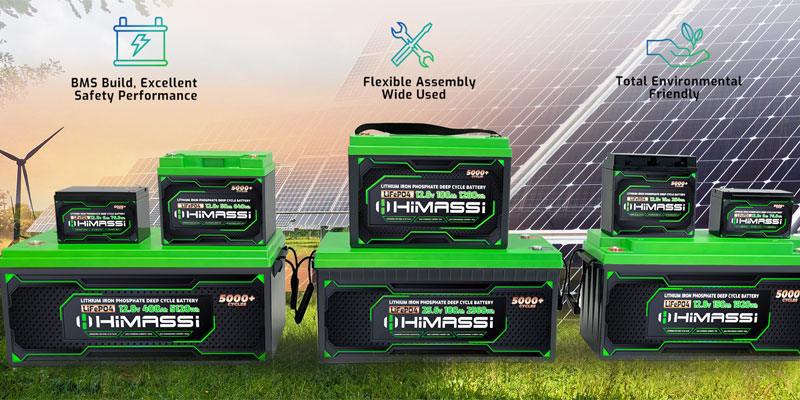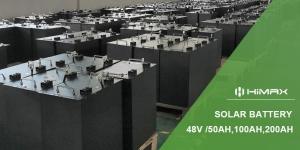Are solar batteries worth it
Introduction to Solar Batteries
Solar batteries are key components in modern renewable energy systems, designed to store energy produced by solar panels during peak sunlight hours. This stored energy is then available for use during nighttime or cloudy days, enhancing the functionality of solar installations by ensuring a consistent and reliable energy supply.
Types of Solar Batteries
The choice of a solar battery depends on various factors, including budget, energy needs, and installation specifics. Here are the most commonly used types:
-
Lithium-Ion Batteries: These are the most popular choice for residential and commercial solar systems due to their high efficiency, long lifespan, and compact size. Lithium-ion batteries have a high energy density, which means they can store more energy in less space compared to other types. They are relatively lightweight and have a decline rate of capacity much slower than other batteries, making them ideal for long-term use. However, the advanced technology that gives these batteries their edge also makes them one of the most expensive options on the market.
-
Lead-Acid Batteries: Known for their affordability and reliability, lead-acid batteries have been used for decades in various applications, including solar energy systems. They are particularly favored in off-grid installations where large storage capacities are needed at a lower upfront cost. The main drawbacks are their bulkiness, weight, and the maintenance required to ensure longevity, including regular topping up of electrolyte levels and ensuring they are not overcharged.
-
Saltwater Batteries: As a newer technology in the market, saltwater batteries offer an environmentally friendly alternative to traditional batteries. They do not contain heavy metals like lead or corrosive acids, instead using saltwater as the electrolyte. While they are safer and more eco-friendly, their energy density is lower than that of lithium-ion and lead-acid batteries, which means they require more space to store the same amount of energy.
Enhancements in Technology
Recent advancements in solar battery technology focus on increasing efficiency, reducing costs, and enhancing the environmental profile of the products. Innovations include improvements in battery chemistry, integration with smart home technologies, and modular designs that allow for easier expansion of storage capacity as needs grow.
These advancements are not just enhancing the appeal of solar batteries from a technical perspective but are also making them a more compelling investment by extending their usable life and reducing the total cost of ownership.
The Financial Benefits of Solar Generation
Investing in solar batteries can yield significant financial returns over time, making it a smart choice for increasing the value of solar installations.
Cost Reduction
The ability to store solar energy for later use means homeowners can significantly reduce their reliance on the grid, particularly during peak usage times when electricity rates are highest. This capability is crucial for making the most out of your solar investment:
-
Peak Shaving: By using stored energy during peak hours, you can avoid the high costs associated with peak electricity rates. This is especially beneficial in areas with time-of-use billing, where electricity prices fluctuate based on demand throughout the day.
-
Demand Charge Reduction: For commercial installations, demand charges based on the maximum spike in usage can be exorbitant. Solar batteries help smooth out energy usage, reducing these spikes and thereby lowering monthly energy bills significantly.
Increased Energy Efficiency
Solar batteries improve the overall efficiency of solar power systems by capturing excess energy that would otherwise be sent back to the grid. This not only maximizes the use of generated solar power but also ensures that homeowners are not subject to the often less favorable terms of net metering agreements, where the energy sent back to the grid may be undervalued.
Return on Investment (ROI)
The ROI from solar batteries is influenced by several factors, including initial setup costs, savings on energy bills, lifespan of the system, and available government incentives. Calculating the ROI requires an analysis of these factors:
-
Initial and Ongoing Costs: This includes the cost of the batteries, installation, and any maintenance or replacement costs over the lifespan of the battery.
-
Savings on Energy Bills: Calculated by estimating how much electricity the solar battery system will save on a monthly or annual basis.
-
Incentives: Federal, state, or local incentives can offset a substantial portion of the upfront costs, accelerating the ROI.
Enhancing Grid Independence with Solar Batteries
Investing in solar batteries not only contributes to financial savings but also significantly enhances a household’s or business’s energy independence. This independence is crucial during power outages and grid instability, which are becoming more frequent due to various factors including aging infrastructure and extreme weather events due to climate change.
Reliability During Outages
One of the primary benefits of solar batteries is their ability to provide reliable power during grid outages. This is particularly important in areas prone to extreme weather conditions such as hurricanes, wildfires, or heavy storms, which can knock out power for extended periods. With a solar battery system:
-
Emergency Power Supply: Solar batteries can be designed to kick in automatically when the grid goes down, ensuring continuous power without interruption. This is essential for maintaining critical devices such as home medical equipment, refrigerators, and heating systems.
-
Self-Sufficiency: For those living in remote areas, or areas where the grid is unreliable, solar batteries provide a much-needed layer of security. They ensure that households and businesses can operate independently of grid power, which is not only convenient but often necessary for daily operations.
-
Sustainability: By reducing dependence on the grid, solar batteries also contribute to the sustainability of the energy system. They help to balance the load on the grid, especially during peak demand times, which can prevent blackouts and reduce the need for expensive, pollution-heavy peaking power plants.
Increasing Solar Utilization
Without a battery, solar energy is only available in real-time, during sunlight hours. However, energy demand often peaks in the early evening when solar production is decreasing. Solar batteries address this mismatch by:
-
Storing Excess Energy: Solar batteries store excess production during peak sunlight hours, which can then be used during the evening or on cloudy days, maximizing the use of solar energy.
-
Enhancing Energy Security: By storing excess energy, batteries ensure that solar energy users are less impacted by changes in state or utility net metering policies, which can affect the financial return of solar investments.
-
Load Balancing: Batteries can help balance the energy load within a home or grid system, reducing the strain on the grid and helping to stabilize voltage and frequency, which can improve overall grid reliability.
Environmental Impact of Solar Batteries
The environmental benefits of solar batteries are significant, as they help to reduce reliance on fossil-fuel-derived electricity and decrease greenhouse gas emissions. However, the production and disposal of batteries also have environmental impacts that must be considered.
Reducing Carbon Footprint
Solar batteries play a crucial role in reducing the carbon footprint of residential and commercial energy systems:
-
Decreased Fossil Fuel Usage: By maximizing the utilization of solar power, batteries reduce the need for fossil fuel-based power generation, thus lowering the overall emissions of greenhouse gases and other pollutants.
-
Supporting Renewable Energy Adoption: As batteries make solar systems more efficient and reliable, they increase the viability of solar solutions in more areas and applications, encouraging wider adoption of renewable energy technologies.
Addressing Environmental Concerns
While solar batteries offer significant environmental benefits, they also pose challenges:
-
Battery Production: The production of batteries involves the extraction and processing of metals like lithium, cobalt, and nickel, which can have significant environmental impacts. However, advances in battery technology and recycling are aimed at reducing these effects.
-
End-of-Life Management: Disposing of solar batteries, particularly those containing toxic materials, must be handled carefully to avoid environmental contamination. Increasingly, recycling programs are being developed to recover valuable materials from used batteries, reducing the need for new raw materials and lessening environmental impact.
The Benefits of Choosing Himax Electronics
Opting for Himax Electronics in your solar battery setup brings additional advantages that enhance the overall value of the investment:
-
Cutting-edge Technology: Himax Electronics offers some of the most advanced solar battery technologies available, ensuring high efficiency and durability.
-
Environmental Commitment: Himax is committed to sustainability, not only in its products but also through responsible manufacturing practices and robust recycling programs.
-
Customer Support and Warranty: Himax provides comprehensive customer support and warranties that protect your investment and ensure long-term satisfaction with your solar battery system.
Conclusion
Solar batteries are a worthwhile investment for those looking to enhance their energy independence, reduce their carbon footprint, and save on electricity costs. With the added benefits provided by Himax Electronics, users can enjoy a high-performing, sustainable, and reliable solar energy system that stands the test of time. The combination of financial savings, environmental benefits, and energy reliability makes solar batteries an increasingly essential component of modern energy solutions.





